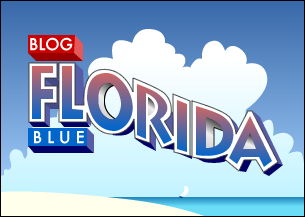And of course, here in Florida there has been all this talk back and forth about whether or not my vote will even count. Well, it counts enough for me to get myself to the Supervisor of Elections office in downtown St. Petersburg to cast my ballot for...
John Edwards, because he speaks directly to me on the kind of things our next President will need to do to take back our country and to begin to repair all the damage that has been done by Bush & Co. I want somebody who is going to fight for me. I want someone who understands that when Republicans talk about compromise and bipartisanship, what they are really talking about is you having to give in to them. These people never compromise their positions. They always expect you to compromise yours. John Edwards understands that. He speaks directly to my values and has earned my vote.
So that's me. What about you? Are you going to let some talking head pundit tell you that your vote doesn't count, so don't bother? Please do not listen to that bull. We are having an election in Florida. The results will be tallied. The winners and losers will be known. And all of this is going to happen one week before Tsunami Tuesday when all those other states vote. The Florida results will undoubtedly have an influence on the outcomes in those states. That's what going early is really all about. It is not about delegates. The candidates did not spend all those millions in New Hampshire to get 9 delegates, the number that both Sen. Clinton and Sen. Obama received there. They did it because New Hampshire goes early and its results influence the outcome in all the other states that follow. It will be the same for Florida, only more so.
And what about our independent friends? Florida does have a closed primary system, so they will not be able to vote in our Presidential Preference Primaries. However, we do have a very important state constitutional amendment on the ballot this election on which independents can vote. The so called property tax reform, Amendment 1, is a very weak attempt at reform of our property tax system. In fact, this is not so much reform as it is pandering to homestead property owners.
Homestead property owners have been very well protected by the wildly successful Save Our Homes amendment which caps increases in taxable values of homesteads at 3% per year. This has protected homesteaders from the tax impact of the rampant run up in property values in recent years. Yet almost all of the benefits of this "reform" are directed at them. Small business owners and renters do not have this protection, yet they are getting basically none of the "relief" in this amendment. And this "relief" only amounts to $240 per year for the average Florida homeowner. This amount, while small individually, is large in the aggregate and will have very damaging impacts on the ability of local governments and school boards to deliver to us the services that we want. For these reasons, I am voting No on 1. Sorry, Charlie (Crist, our Republican Governor and a big backer of Amendment 1).
Strangely enough with a property tax cutting amendment on the statewide ballot, we are asking the voters in Pinellas County to keep a tax increase on themselves. Four years ago, voters in my county approved a small increase in their school property taxes. This tax was pledged to go mainly to increased teacher salaries, to keeping arts programs in the schools and to adding technology for our students. The proposal passed overwhelmingly four years ago with well over 60% of the vote. However, our Republican legislature will only allow us to choose to tax ourselves for four years at a time. Thus the measure is back on the ballot for renewal.
This program has been wildly successful. There is an independent citizen oversight committee that ensures that this money is, in fact, going where it is supposed to go. And it is. Our teacher salaries have been able to be increased to the point that we have a regionally competitive advantage in recruiting. We have more arts and music programs than we had four years ago. And we now have computer labs in every high school in the County. I am going to vote to keep this program going. (This is also another measure on the ballot that independents can vote for.)
So, as the Florida Democratic Party has asked, I am going out today to "Make it Count!" I can't wait to put that "I Voted" sticker on. I hope all my fellow Floridians will do the same on or before January 29th. You'll be glad you did.


